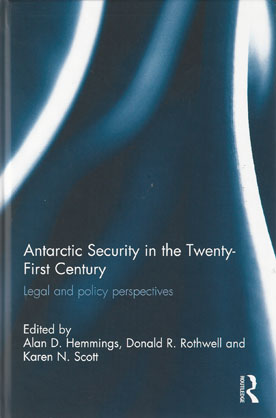We will be closed from 5pm Thursday 17th April for the Easter Bank Holidays, re-opening at 8.30am on Tuesday 22nd April. Any orders placed during this period will be processed when we re-open.

The Antarctic Treaty (1959) was adopted for the purpose of bringing peace and stability to the region and to facilitate cooperation in scientific research conducted on and around the continent.
One of the prime motivators in the conclusion of the Antarctic Treaty was security, as considerable tension existed over Antarctica with the overlapping claims of Argentina, Chile and the United Kingdom on the Antarctic Peninsula. More generally, the two Cold War protagonists – the (then) USSR and US – had a significant presence on the continent and had reserved their rights to make a territorial claim to the continent.
Therefore the Antarctic Treaty, founded on the principles of peaceful purposes, de-militarisation, non-nuclearalisation and the promotion of scientific research, created a new security construct for Antarctica.
It is now been over fifty years since the Antarctic Treaty’s entry into force, nevertheless, security continues to both drive and shape the legal and policy regime which applies to Antarctica. This book explores a wide range of Antarctic and Southern Ocean issues through the lens of security.
The contributions to this volume engage with a security discourse which has expanded beyond the traditional military domain to include notions of economic security, environmental security, food security, bio-security, heath security and human security. The chapters consider topics such as the implications for Antarctica and the Southern Ocean of the growing strategic competition between the rising powers of Asia, the possible effects of climate change on the authority, legitimacy and effectiveness of the Antarctic Treaty System, and the shift from 'strategic' security to 'human' security and its potential consequences for the Antarctic treaty regime.
This book will provide a contemporary and innovative approach to Antarctic issues which will be of interest to scholars of international law, international relations, security studies, political scientists, geographers as well as policy makers, lawyers and government officials interested in the region.